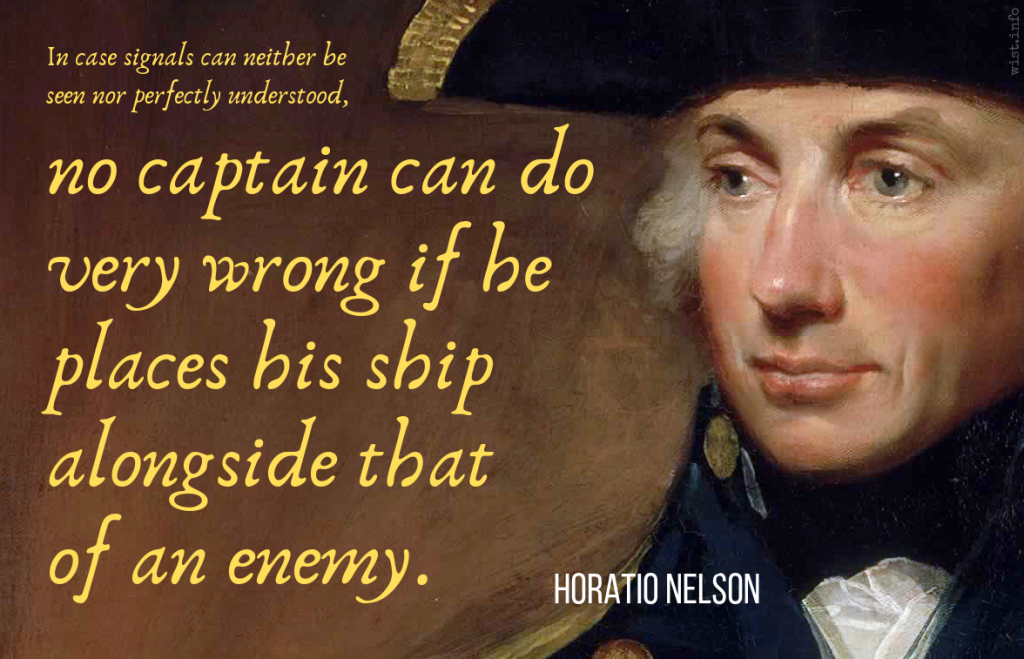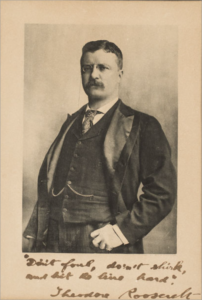The Puritan is one who uses the Cross as a hammer to knock in the heads of sinners.
H. L. Mencken (1880-1956) American writer and journalist [Henry Lewis Mencken]
A Little Book in C Major, ch. 4, § 26 (1916)
(Source)
Quotations about:
attack
Note not all quotations have been tagged, so Search may find additional quotes on this topic.
Sticks and stones may break my bones, but words will always hurt me. Bones mend and become actually stronger in the very place they were broken and where they have knitted up; mental wounds can grind and ooze for decades and be re-opened by the quietest whisper.
Stephen Fry (b. 1957) British actor, writer, comedian
Moab Is My Washpot, “Joining In,” ch. 4 (1997)
(Source)
You can’t beat an Administration by attacking it. You have to show some plan of improving on it.
I now return the Sermon you were so kind as to enclose me, having perused it with attention. The reprinting it by me, as you have proposed, would very readily be ascribed to hypocritical affectation, by those who, when they cannot blame our acts, have recourse to the expedient of imputing them to bad motives. This is a resource which can never fail them, because there is no act, however virtuous, for which ingenuity may not find some bad motive.
Thomas Jefferson (1743-1826) American political philosopher, polymath, statesman, US President (1801-09)
Letter to Edward Dowse (19 Apr 1803)
(Source)
But let us die, go plunging into the thick of battle.
One hope saves the defeated: they know they can’t be saved![Moriamur et in media arma ruamus.
Una salus victis, nullam sperare salutem.]Virgil (70-19 BC) Roman poet [b. Publius Vergilius Maro; also Vergil]
The Aeneid [Ænē̆is], Book 2, l. 353ff (2.353-354) [Aeneas] (29-19 BC) [tr. Fagles (2006), l. 443ff]
(Source)
(Source (Latin)). Alternate translations:
Then let's incounter death, fall bravely on,
Vanquish'd men's safety is to hope for none.
[tr. Ogilby (1649)]
Then let us fall, but fall amidst our foes:
Despair of life the means of living shows.
[tr. Dryden (1697)]
Let us meet death, and rush into the thickest of our armed foes. The only safety for the vanquished is to throw away all hopes of safety.
[tr. Davidson/Buckley (1854)]
Come -- rush we on our fate.
No safety may the vanquished find
Till hope of safety be resigned.
[tr. Conington (1866)]
Let us die,
And plunge into the middle of the fight.
The only safety of the vanquished is
To hope for none.
[tr. Cranch (1872)]
Let us die, and rush on their encircling weapons. The conquered have one safety, to hope for none.
[tr. Mackail (1885)]
Fall on a very midst the fire and die in press of war!
One hope there is for vanquished men, to cherish hope no more.
[tr. Morris (1900)]
Forward, then,
To die and mingle in the tumult's blare.
Sole hope to vanquished men of safety is despair.
[tr. Taylor (1907), st. 47, l. 421ff]
Let us fight
unto the death! To arms, my men, to arms!
The single hope and stay of desperate men
is their despair.
[tr. Williams (1910)]
Let us die, and rush into the midst of arms. One safety the vanquished have, to hope for none!
[tr. Fairclough (1916)]
So let us die,
Rush into arms. One safety for the vanquished
Is to have hope of none.
[tr. Humphries (1951)]
Let us die, let us charge into the battle's heart!
Losers have one salvation -- to give up all hope of salvation.
[tr. Day Lewis (1952)]
Then let
us rush to arms and die. The lost have only
this one deliverance: to hope for none.
[tr. Mandelbaum (1971), l. 477ff]
Come, let us die,
We'll make a rush into the thick of it.
The conquered have one safety: hope for none.
[tr. Fitzgerald (1981), l. 470ff]
Let us die. Let us rush into the thick of the fighting. The one safety for the defeated is to have no hope of safety.
[tr. West (1990)]
Let us die and rush into battle.
The beaten have one refuge, to have no hope of refuge.
[tr. Kline (2002)]
All that is left for us
Is to rush onto swords and die. The only chance
For the conquered is to hope for none.
[tr. Lombardo (2005)]
Let us die even as we rush into the thick of the fight. The only safe course for the defeated is to expect no safety.
[Routledge (2005)]
Let's die by plunging into war. Our only refuge is to have no hope of refuge.
[tr. Bartsch (2021)]
The very presence of a weapon provokes a man to use it.
[αὐτὸς γὰρ ἐφέλκεται ἄνδρα σίδηρος.]
Homer (fl. 7th-8th C. BC) Greek author
The Odyssey [Ὀδύσσεια], Book 16, l. 294 (16.294) [Odysseus] (c. 700 BC) [tr. Rieu (1946)]
(Source)
(Greek (Source)), repeated in 19.13.
In Book 16, Odysseus offers this as part of the argument Telemachus can use to the suitors to explain why he has stripped the hall of weapons -- that, should the weapons remain, they might tempt drunken people to violence. Book 19, back at the hall, Odysseus repeats almost the same instructions to Telemachus. The same Greek is used for this phrase in both passages; some translators use the same language, others make changes to it.
Epigram (and title inspiration) in Joe Abercrombie's The Blade Itself (2006) -- "The blade itself incites to deeds of violence." Abercrombie was a fan of the Rome: Total War game, which included in its load pages the translation, "The blade itself incites to violence.
BOOK 16, l. 294
- "Steel itself, ready, draws a man to blows." [tr. Chapman (1616)]
- "One drawn sword draws another." [tr. Hobbes (1675), l. 276]
- "Oft ready swords in luckless hour incite / The hand of wrath, and arm it for the fight." [tr. Pope (1725)]
- "For the view / Itself of arms incites to their abuse." [tr. Cowper (1792), l. 348]
- "Steel itself oft lures a man to fight." [tr. Worsley (1861), st. 37]
- "Steel itself wooes men to battle!" [tr. Bigge-Wither (1869)]
- "For the steel blade itself lures men to blood." [tr. Musgrave (1869), l. 462]
- "For iron of itself draws a man thereto." [tr. Butcher/Lang (1879)]
- "For this is said aright, / That e'en of himself the iron draws on a man to smite." [tr. Morris (1887)]
- "Steel itself draws men on." [tr. Palmer (1891)]
- "For the sight of arms sometimes tempts people to use them." [tr. Butler (1898)]
- "For of itself does the iron draw a man to it." [tr. Murray (1919)]
- "Iron of itself tempts man's frailty." [tr. Lawrence (1932)]
- "Tempered iron can magnetize a man." [tr. Fitzgerald (1961)]
- "Iron all of itself works on a man and attracts him." [tr. Lattimore (1965)]
- "For iron of itself can tempt a man." [tr. Mandelbaum (1990)]
- "Iron has powers to draw a man to ruin." [tr. Fagles (1996)]
- "There's a force in iron that lures men on." [tr. D. C. H. Rieu (2002)]
- "For iron itself draws a man to employ it." [tr. Merrill (2002)]
- "Iron of itself draws a man on." [tr. Verity (2016)]
- "Weapons themselves can tempt a man to fight." [tr. Wilson (2017)]
- "For iron of itself attracts a man." [tr. Green (2018)]
- "Iron attracts a man all on its own." [tr. Johnston (2019)]
- "And beckoning, the iron itself drags the man." [Source]
BOOK 19, l. 13 -- items in italics are the same as their Book 16 counterparts.
- "As loadstones draw the steel, so steel draws man." [tr. Chapman (1616)]
- "One drawn sword draws another." [tr. Hobbes (1675)]
- "By sight of swords to fury fired." [tr. Pope (1725)]
- "For the view / Itself of arms incites to their abuse." [tr. Cowper (1792)]
- "Steel itself oft lures a man to fight." [tr. Worsley (1861), st. 2]
- "The sight of iron tempts to use it!" [tr. Bigge-Wither (1869)]
- "For the steel blade itself / Lures men to blood." [tr. Musgrave (1869)]
- "For iron of itself draws a man thereto." [tr. Butcher/Lang (1879)]
- "For e'en of himself the Iron to battle draweth men." [tr. Morris (1887)]
- "Steel itself draws men on." [tr. Palmer (1891)]
- "For the sight of arms sometimes tempts people to use them." [tr. Butler (1898)]
- "For of itself does the iron draw a man towards it." [tr. Murray (1919)]
- "Iron has that attraction for men." [tr. Lawrence (1932)]
- "The very presence of a weapon provokes a man to use it." [tr. Rieu (1946)]
- "Iron itself can draw men's hands." [tr. Fitzgerald (1961)]
- "Iron all of itself works on a man and attracts him." [tr. Lattimore (1965)]
- "For iron of itself can tempt a man." [tr. Mandelbaum (1990)]
- "Iron has powers to draw a man to ruin." [tr. Fagles (1996)]
- "Steel has a way of drawing a man to it." [tr. Lombardo (2000)]
- "There's a force in iron that lures men on." [tr. D. C. H. Rieu (2002)]
- "For iron itself draws a man to employ it." [tr. Merrill (2002)]
- "For iron of itself draws a man on." [tr. Verity (2016)]
- "For iron of itself attracts a man." [tr. Green (2018)]
- "For iron by itself / can draw a man to use it." [tr. Johnston (2019)]
However rationalized it may be, censorship is always an attack on human intelligence and imagination and is always a sign of weakness, not strength, in those who enforce it.
Northrop Frye (1912-1991) Canadian literary critic and literary theorist
“Introduction to Canadian Literature,” #14 (1988)
(Source)
You are astonished to find yourself the butt of so much calumny, opposition, indifference and ill-will. You will be more so and have more of it; it is the reward of the good and the beautiful: one may calculate the value of a man from the number of his critics and the importance of a work by the evil said of it.
Was none who would be foremost
To lead such dire attack;
But those behind cried “Forward!”
And those before cried “Back!”Thomas Babington Macaulay (1800-1859) English writer and politician
“Horatius,” st. 50, Lays of Ancient Rome (1842)
(Source)
ANTON EGO: In many ways, the work of a critic is easy. We risk very little, yet enjoy a position over those who offer up their work and their selves to our judgment. We thrive on negative criticism, which is fun to write and to read. But the bitter truth we critics must face, is that in the grand scheme of things, the average piece of junk is probably more meaningful than our criticism designating it so.
In case signals can neither be seen nor perfectly understood, no captain can do very wrong if he places his ship alongside that of an enemy.
Horatio Nelson (1758-1805) British admiral
Memorandum before the Battle of Trafalgar (9 Oct 1805)
(Source)
Never strike a king unless you are sure you shall kill him.
Ralph Waldo Emerson (1803-1882) American essayist, lecturer, poet
Journal (1843-09)
(Source)
In addition to the noted source, see also here. However, according to the reliable Ralph Keyes, the quotation is spurious. Keyes also suggests an inspiration from the 17th Century English proverb, "Whosoever draws his sword against the prince must throw the scabbard away."
A variant, "When you strike at a king you must kill him," is attributed to Emerson by Oliver Wendell Holmes, Jr., in Max Lerner, The Mind and Faith of Justice Holmes (1943).
HENRY: I see you stand like greyhounds in the slips,
Straining upon the start. The game’s afoot;
Follow your spirit: and upon this charge,
Cry “God for Harry, England, and Saint George!”William Shakespeare (1564-1616) English dramatist and poet
Henry V, Act 3, sc. 1, l. 34ff (3.1.34-37) (1599)
(Source)
HENRY: Once more unto the breach, dear friends, once more;
Or close the wall up with our English dead!
In peace, there’s nothing so becomes a man,
As modest stillness and humility:
But when the blast of war blows in our ears,
Then imitate the action of the tiger;
Stiffen the sinews, summon up the blood,
Disguise fair nature with hard-favored rage ….William Shakespeare (1564-1616) English dramatist and poet
Henry V, Act 3, sc. 1, l. 1ff (3.1.1-8) (1599)
(Source)
Every man is wise when attacked by a mad dog; fewer when pursued by a mad woman; only the wisest survive when attacked by a mad notion.
Robertson Davies (1913-1995) Canadian author, editor, publisher
Samuel Marchbanks’ Almanack (1967)
(Source)
All books are either dreams or swords,
You can cut, or you can drug, with words.
The slander of some people is as great a recommendation as the praise of others. For one is as much hated by the dissolute world, on the score of virtue, as by the good, on that of vice.
Henry Fielding (1707-1754) English novelist, dramatist, satirist
The Temple Beau, Act 1, sc. 1 (1729)
(Source)
If you attack the establishment long enough and hard enough, they will make you a member of it.
Art Buchwald (1925-2007) American humorist, columnist
Speech, Horatio Alger Award Dinner, Washington, DC (May 1989)
Buchwald used a number of variations of this phrase; this particular one was reported a week later in the International Herald Tribune (24 May 1989), but other versions go back to the 1960s (e.g., "Woe to the person in this country who attacks the establishment. It isn’t jail, nor even physical harm, that he must fear. His main problem is that by attacking the Establishment, he automatically becomes a member of it, and there is no greater punishment in the world," from his column of 7 May 1968). See here for more info.
Never complain and never explain.
Benjamin Disraeli (1804-1881) English politician and author
(Attributed)
(Source)
Most often cited to John Morley, Life of William Ewart Gladstone, Vol. 1, Book 2, ch. 2, sec. 1 (1903). This was Disraeli's distillation of advice that Lord High Chancellor John Copley, Lord Lyndhurst, gave at a January 1835 dinner attended both a young Gladstone and Disraeli:
Never defend yourself before a popular assemblage, except with and by retorting the attack; the hearers, in the pleasure which the assault gives them, will forget the previous charge.
The phrase is also attributed to Benjamin Jowett, Henry Ford II, and Charles Stewart Parnell.
They did to others that which they would not they should do to them — that grand principle of immorality upon which rests the whole art of war.
[Ils faisaient à autrui ce qu’ils ne voulaient pas qu’on leur fît, principe immoral sur lequel repose tout l’art de la guerre.]
Jules Verne (1828-1905) French novelist, poet, playwright
From the Earth to the Moon, ch. 10 (1865) [tr. Scribner’s (1890)]
(Source)
Alt. trans.: "They did unto others what they would not have others do unto them, an immoral principle that is the basic premise of the art of war." [tr. Miller (1978)]
We should be wanting to ourselves, we should be perfidious to posterity, we should be unworthy that free ancestry from which we derive our descent, should we submit with folded arms to military butchery & depredation ….
Thomas Jefferson (1743-1826) American political philosopher, polymath, statesman, US President (1801-09)
“Declaration of the Causes and Necessity for Taking Up Arms” (6 Jul 1775) [with John Dickinson]
(Source)
Final draft as approved by the Continental Congress.
In a Debate, rather pull to Pieces the Argument of thy Antagonist than offer him any of thy own; for thus thou wilt fight him in his own Country.
Thomas Fuller (1654-1734) English physician, preacher, aphorist, writer
Introductio ad Prudentiam, # 766 (1725)
(Source)
It is only when they cannot answer your reasons, that they wish to knock you down.
Ralph Waldo Emerson (1803-1882) American essayist, lecturer, poet
“The Assault upon Mr. Sumner,” speech, Concord (1856-05-26)
(Source)
In short, in life, as in a foot-ball game, the principle to follow is:
Hit the line hard; don’t foul and don’t shirk, but hit the line hard!Theodore Roosevelt (1858-1919) American politician, statesman, conservationist, writer, US President (1901-1909)
“What We Can Expect of the American Boy,” St. Nicholas Magazine (1900-05)
(Source)
Reprinted as "The American Boy" in Roosevelt, The Strenuous Life (1900).
Roosevelt used this general phrasing on multiple occasions, so various forms can be found attributed or associated to him, such as:
- "In life, as in a football game, the principle to follow is: Never flinch. Never foul. Hit the line hard."
[Source]- "Don't flinch. Don't foul. Hit the line hard."
[Puck]- "Don't fowl, don't shirk, and hit the line hard!"
[Autograph]- "Don't flinch, don't fowl, and hit the line hard."
[Speech (1913-07-03)]
A candor affected is a dagger concealed.
Marcus Aurelius (AD 121-180) Roman emperor (161-180), Stoic philosopher
Meditations, Book 11, #15 [tr. Staniforth (1964)]
(Source)
Alternate translations:
- "But the affectation of simplicity is nowise laudable." [tr. Casaubon (1634), #14]
- "An affectation of being real, is an untoward pretence." [tr. Collier (1701)]
- "But the affectation of simplicity is like a crooked stick." [tr. Long (1862)]
- "An affectation of sincerity is a very dagger." [tr. Zimmern (1887)]
- "But the affectation of simplicity is like a razor." [tr. Farquharson (1944)]
- "But false straightforwardness is like a knife in the back." [tr. Hays (2003)]
The truth is often a terrible weapon of aggression. It is possible to lie, and even to murder with the truth.




































